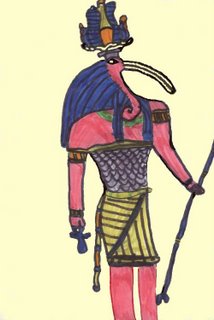
Plato's dialogue Phaedrus unequivocally presents the written word as an untrustworthy agent of communicative transaction.
In the dialogue, Socrates relates the story of the enterprising demigod Theuth, inventor of writing, who peddles his new ware to the king. Theuth proclaims, "Here is an accomplishment which will improve both the wisdom and the memory of the Egyptians. I have discovered a sure recipe for memory and wisdom." The king, unconvinced of writing's merit, responds to Theuth:
"you, who are the father of writing, have out of fondness for your offspring
attributed to it quite the opposite of its real function. Those who acquire it
will cease to exercise their memory and become forgetful; they will rely on external signs instead of their own internal resources."*
Download ebooks on http://www.frenchtheory.com/ See that post with different algorithms in metabole See the journal French Metablog with today different postsEnter Hypertextual as a member
